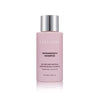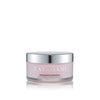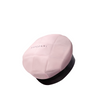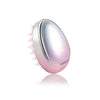
How Much Hair Loss Is Normal?
Most people perceive hair to be healthy when it has lots of volume, motion, and gloss. It is so simple to believe that a medical condition is to blame for the loss of hair whenever you simply look at the drain and observe a cluster of fallen strands of hair. However, significant hairline loss occurs frequently for people of all ages.
The strands that have already become weak or separated from your head gather near the drain when you vigorously shampoo your hair in the bath. Even though it may appear to be much, you are likely only observing natural hair loss.
Consult your primary care practitioner or our Tayloáni products specially designed for hair growth if you have bald spots, patchy hair loss, or clusters of hair falling out that are abnormal for you.
So, keep on reading to discover whether you are losing a typical number of hairs every day and what are some of the best hair treatments.
How Much Hair Does the Average Man and Woman Lose?
Compared to men, women often shed greater strands of hair each day. Since regular hair dying and everyday heat straightening have a significant impact on the amount of your hair loss, it is impossible to assess the variation scientifically. According to Source, 40 percent of women experience daily hair loss because of their hairstyles. Females are more prone than males to undergo phases of excessive hair loss due to life events like childbirth and menopause.
How Much Hair Loss Occurs Normally Per Day?
The Specialists say that it is OK to view the loss of 50 to 100 strands as natural. Additionally, those with longer hair strands might see the hair fall more clearly.
Like tree leaves, all hair has a normal growth cycle that includes rest and shedding. Our hair development is determined by our genetic factors, aging, diet, metabolism, and lifestyle, just as seasons determine the fate of the plant.

What Leads to Hair Loss?
Daily hair loss is typical. Anxiety or a medical issue may trigger more hair loss. Tension, hormonal abnormalities, pregnancy, thyroid problems, drugs, nutritional shortages, rapid loss of weight, and some immune disorders can all lead to hair loss. Additional probable factors for loss of hair include:
- Hair loss in females.
- Thyroid issues.
- Poor dietary habits.
- Having a child.
- Modifying or ceasing to take birth control medications.
- Significant weight loss.
- Recovering from a serious illness.
- Recuperating from a disease.
- Recovering from surgery.
- Losing a close relative.
It can also affect how much hair you lose each day if you wash, bleach, comb, or style it with heat. The structure of your hair strand is weakened as a result of being strained or damaged by a conventional hair loss treatment.
Detecting Excessive Hair Loss: Is It Possible?
You can test your hair yourself with the "pull test." Move your fingers through a tiny segment of your fresh, fine hair to start, softly pulling at the edges as you proceed. You might have telogen or anagen effluvium if more than a couple or three strands remain in your palm after each pull. There should not be more than 10 strands per 100 strands that are currently being pulled out. A specialist is required to ascertain the reason.
When to Visit a Physician?
If you are worried about the amount of hair you are shedding each day, seek medical advice. The crown of your skull gradually thinning, the emergence of hairless or spotty areas on your head, and total body baldness is all indications that a health issue may be present. If you are experiencing hair loss, a doctor can determine whether it is typical shedding.
The following are other indications of irregular hair loss and hair fall:
- The crown of the head's hair gradually starts to fall off.
- The head begins to develop round or spotty bald spots.
- Hair bunches and abruptly becomes loose.
- Scaly patches can be observed on the head because of skin conditions like fungus and lupus. It causes hair cells to enlarge and probably results in loss of hair.
Which Conditions Lead to Hair Loss?
Here is a list of reasons explained that can cause hair loss, but remember you can easily get rid of these conditions and encourage regeneration with the right solution and treatment.
1. Tight hairdos:
The follicles, which control the growth of hair, can be harmed, and hair loss can result from tight hairdos, twists, and braids. Altering your hairdo can stop balding. But take care: Excessive injury to the follicles can result in permanent hair loss.
2. Severe bodily trauma or stress:
Transient hair loss can be brought on by significant physical changes. Childbirth, significant weight loss, trauma, and other ailments can result in greater-than-normal loss of hair, usually during the resting period. However, hair should regrow over time.
3. Medical interventions and harmful chemicals:
Hair loss can be brought on by cancer treatment, a few other medications, and chemotherapy and radiotherapy, particularly during the stage of growth. A person can have unexpected hair loss anywhere throughout their body that can be temporary.
4. Nutrient shortages:
You may have hairline receding if you consume insufficient amounts of protein, zinc, or b - complex. If this occurs to you, consult your physician about taking supplements.
5. Genetic baldness:
This is the most typical reason for loss of hair and is often referred to as "androgenetic alopecia," "male-pattern baldness," or "female-pattern baldness." Women typically have receding hair and a hairline, while men typically have bald patches and a faded haircut. As you become older, this progressively occurs.
6. Alopecia areata:
In this disease, your body starts to assault its own hair. You can lose hair in various places of your body in addition to just your head. Although hair normally regrows, the loss could resume. For a few years, you can experience the loss-regrow pattern.
7. Consuming insufficient protein:
Whenever your system doesn't receive sufficient protein, it limits out all the protein it does receive, which may result in regrowing hair being halted. You can acquire the essential protein you need by consuming dairy, poultry, and seafood. Try consuming extra grains, nuts, or legumes if you are a vegetarian.
8. Excessive vitamin A:
Although vitamin A promotes hair growth, too much of its intake in the form of pills can lead to hair loss. So, avoid its excessive use; instead, improve your Vitamin-A Food diet intake for more effective and healthy results.
How to Stop Hair Loss as You Get Older?
Some fundamental guidelines for maintaining good health and promoting healthier hair over time include:
- Drinking plenty of water.
- Getting adequate rest.
- Regular exercise.
Your doctor might advise taking biotin, zinc, or other vitamins or rubbing 5% minoxidil onto your head once a day if you have fine hair. More severe cases of hair loss are treatable with cutting-edge therapies.
How Much Hair Can You Lose in the Shower Normally?

Many hairs that have already fallen out of the head are gathered during hair washing. Certain chemical components in shampoos have the potential to be toxic and induce hair loss or breakage. If someone starts to see more hair coming out in the shower, they should stop using the product and switch to one with a milder formula like Tayloani’s Infinigrowth Bundle. It may be wise to visit a physician or dermatologist if the rise is significant.
Individuals who have lengthy or thick hair may lose between 150 and 200 hairs on days when they wash their hair. (However, if you don't wash it again, they won't shed as much the following day.) Due to all the accumulations, individuals who only rinse their hair once or twice a week may experience more loss when they opt to wash it.
While most of the hair loss should occur in the shower, it's nevertheless usual to experience some loss when combing through. However, if you persist in losing it after shampooing or if you start to discover it all throughout your clothes, it could indicate a problem.
What Is the Most Effective Hair Loss Treatment?
Considering that there are numerous causes of hair loss, it is crucial to consult with a specialist to discover a particular tale. But most specialists advise patients to follow these daily instructions to keep a healthy head and follicles:
- Eating a diet that is balanced.
- Consuming vitamin D, B vitamins 6, and B vitamins 12.
- Ensure that you wash your hair at least three times every week.
- Wash your hair twice a week if you are letting it out.
- Steer clear of brushing your wet hair.
- Use curling or flat irons sparingly. Use the lowest temperature setting when you do use them.
- Avoid pulling your hair up too tightly; choose a loose style as opposed to a curly or wavy ponytail.
-
If you swim, wear a swim hat, clean your hair right away, and use Infinigrowth Shampoo designed for swimmers. Chlorine from swimming pool chemicals can harm your hair.
Scalp health is essential, according to physicians. Make sure to routinely rinse your scalp and hair regularly to prevent the build-up of sweat, chemicals, oils, and dirt. Doctors usually advise against wearing tight hairstyles like knots, cornrows, and tight braids. Brush your hair gently. If necessary, use an Infinigrowth Detangler to prevent excessive stress while combing.
The smallest tissue in our bodies, hair, is incredibly intricate. You might use essential oils like jasmine, lavender, flaxseed, almond, and avocado oil to moisturize your scalp and your hair. These can be combined and applied straight to the scalp and hair for a 20-minute scalp and hair treatment before being thoroughly shampooed off. You shouldn't use this treatment if your scalp is naturally greasy.
However, it is important to know that there is a cause for the initial loss of your hair, and an at-home solution could not be effective. If you continue using a lot of products indiscriminately without understanding why your hairline is thinning, it will keep falling out.
Get Help for Hair Loss Right Away
Losing a few hair strands each day is common. However, Anxiety, medications, and underlying health disorders are a few examples of factors that might make hair loss worse. Adopting measures to properly care for the hair by using our Tayloáni products and eliminating factors of baldness will assist in maintaining strong, healthy hair. Additionally, it can assist in stopping any signs from getting severe, such as hair loss.
You should immediately get in touch with your doctor if you witness severe or unexpected hair loss because it could indicate a serious underlying medical condition. An expert evaluation can soothe your worry. Provide your doctor with a complete hair history, including when and where the reduction started, the extent of the loss, and any pertinent symptoms.






